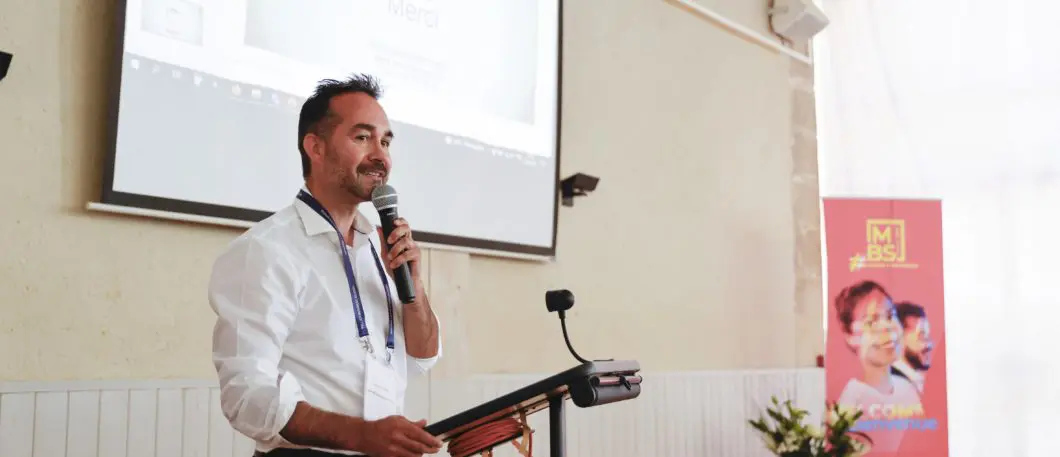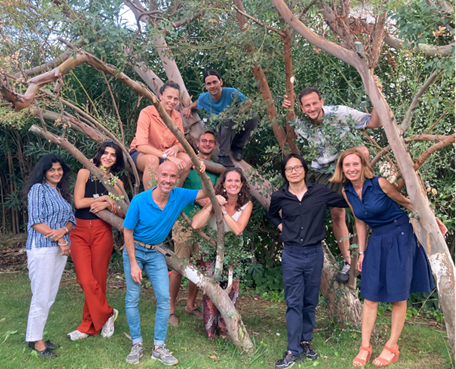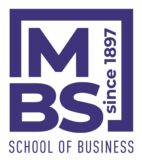- Home /
- Faculty & Research /
- Research at MBS /
- Research groups
Research groups

Discover the MBS research groups
MBS has 2 research groups :
- Management & Organisation of Sustainable Transformations
- Health & Innovation for Society
Presentation
Management and Organization of Sustainable Transformations (MOST) is a group of management and organization scholars with shared interests in understanding, explaining, and envisioning organizational and societal change towards more socio-ecologically sustainable futures. The group congregates a diverse set of research agendas including, but not limited to, the study of business ethics, business and society, critical management, corporate social responsibility, regulation and governance, social entrepreneurship and innovation, inclusive organizations and organizing, health and well-being in organizations, socio-ecological systems, and processes of resilience and transformation. Collectively, we strive to engage and integrate multiple theoretical perspectives in management studies – e.g. theories of organization, strategy, innovation or entrepreneurship – and from multiple other scientific fields (e.g. ethics, economics, psychology, sociology and the natural sciences) to understand sustainable transformations in novel ways.

Activities and values
A core aim of this research group is to provide a platform where members and guests can present their research and receive feedback about it. Early-stage ideas for research projects are equally welcome as more advanced paper projects, journal revisions, or more comprehensive research works (e.g. work on PhD theses, habilitations, or book projects). Members of the group strive to read and immerse themselves in these projects and to give honest, clear, and constructive feedback. The aim is to help authors improve their research projects and move them forward.
However, given the topic at the core of interest, the MOST group does not just ‘do research’; it also promotes collective reflection and experimentation to synergize our research and the impact we strive to have in our education, in our organizations and in our societies. Therefore, along with organizing regular research seminars, we discuss – in collaboration with the Labs, Chairs, and Research Centers at Montpellier Business School and beyond – how our research could innovate and redesign our teaching curricula and engagements with students, companies, public agencies, and the civil society.
We organize our activities with constant reference to our bonding values: a bottom-up approach of reciprocal engagement and decision-making, support of our creativity and out-of-the-box thinking, and priority to solidarity, mutual support, inclusiveness, health, wellbeing and ecological prosperity.
Research questions and recent publications
Some of the broad questions we seek to address include:
- How do organizations create value for their stakeholders, for society, and for natural ecosystems?
- How do organizations such as businesses, public actors, nonprofit organizations, civil society, and social movements dialogue, compete and cooperate with each other to generate a sustainable economy and society?
- How do organizations respond to institutional demands and pressures for more sustainability and responsibility?
- How do organizations engage with and manage socio-political tensions and paradoxes related to ethical sustainability choices?
- How do organizations engage in ethical debates on what constitutes value, and what is valuable, in processes of resilience and transformation?
- How do organizations cope with and adapt to social, ecological, and economic adversities?
- How do organizations support or hamper processes of societal change towards sustainable futures?
- How do individual members of organizations make decisions that are (environmentally, socially and ethically) sustainable for the stakeholders and for the organization?
For example, our group members (in bold) have produced these examples of relevant publications in relation to our themes of interest:
Alves M. F. R., Vastola V., Galina S. & Zollo M. (2023). When reflection hurts: The effect of cognitive processing types on organizational adaptation to discontinuous change. Organization Science. In press.
Bennouri, M., Cozarenco, A. & Nyarko, S. A. (2023). Women on Boards and Performance Trade-offs in Social Enterprises: Insights from Microfinance. Journal of Business Ethics, forthcoming
Börjesson, M., Hamilton, C.J., Näsman, P., & Papaix, C. 2015. Factors driving public support for road congestion reduction policies: Congestion charging, free public transport and more roads in Stockholm, Helsinki and Lyon, Transportation Research Part A: Policy and Practice, Elsevier, vol. 78(C), pages 452-462.
Boyselle J. & Sánchez C.R. (2018). Qualitative evaluation of the influence of two different cultures, Mexican and French, on Corporate Social Responsibility (CSR) perceptions in organic and Fairtrade food industry. PP. 949-982. In Molina Sánchez, R. (2018): Las Mipymes y su competitividad sustentable: reto ante un nuevo ordenamiento económico Munidal. Editorial AIREPME. ISBN: 978-607-97904-0-0
Dentoni, D., Pascucci, S., Poldner, K., & Gartner, W. B. (2018). Learning “who we are” by doing: Processes of co-constructing prosocial identities in community-based enterprises. Journal of Business Venturing, 33(5), 603-622.
Dentoni, D., Pinkse, J., & Lubberink, R. (2021). Linking sustainable business models to socio-ecological resilience through cross-sector partnerships: A complex adaptive systems view. Business & Society, 60(5), 1216-1252.
Delmestri, G., Etchanchu, H., Bothello, J., Gutierrez-Huerter O, G., Habersang, S., & Schuessler, E. (2021). OS4Future: An academic advocacy movement for our future, In Kanashrio, P., Starik., M. Faculty Personal Sustainability, London: Edward Elgar. Forthcoming.
Djan, K. O., Nyarko, S. A., Mersland, R., Beisland, L. A., & Nakato, L. (2023). The impact of international ownership on the performance of social enterprises: A global survey of microfinance shareholder firms. Strategic Change, 32(2-3), 53-71.
Etchanchu, H., De Bakker, F.G.A. and Delmestri, G. Forthcoming. Social Movement Agency for Sustainable Organizing, in Teerikangas, S., Onkila, T., Koistinen, K., & Mäkelä, M. Research Handbook of Sustainability Agency. London: Edward Elgar.
Etchanchu, H. and Djelic, M.L. (2019). Old Wine in New Bottles? Parentalism, Power and its Legitimacy in Business-Society Relations. Journal of Business Ethics, 160(4), 893-911.
Hammadou, H., Papaix, C. Policy packages for modal shift and CO2 reduction in Lille, France, Transportation Research Part D: Transport and Environment, 38, 105-116.
Gaidos, A., Palpacuer, F. & Balas, N. (2017). Social innovation as practice: exploring the entanglement of political and managerial logics, International Journal of Work Innovation, 2(2/3).
Gaidos, A. Forthcoming. A performative approach to social innovation incubation practices in Olivier, G. Entrepreneurship and Society. Montreal: Sciences de l’Administration Presses de l’Université Laval.
Granata J., Gundolf K. & Marques P. 2021. Managing Paradoxical Tensions in a Coopetitive Context: Horizontal Multiple-Firm Coopetition, Revue de l’Entrepreneuriat, Vol. 20, 113-137.
Granata, J. & Jaouen A (2021). Management Libéré 7 entreprises dévoilent leur méthode : agilité, performance durable et antifragilité. Dunod, Paris.
Kessari M., Joly C., Jaouen A. & Jaeck M. 2020. Alternative food networks: good practices for sustainable performance, Journal of Marketing Management, 36(15/16): 1417-1446.
Lacerda D. S., Meira F. B. & Brulon V. (2021). Spatial ethics beyond the North–South dichotomy: Moral dilemmas in Favelas. Journal of Business Ethics. 171: 695–707.
Lombard, E., Kometer, M., & Preuschoff, K. (2019). Neurofinance. Organizational Research Methods, 22(1): 196-222.
Marais M., Joly C, Meyer M., Jaeck M., Kessari M., Andiappan M. & Dufour L. 2020. Legitimizing a diversity policy in a challenging environment: A case study of a French business school. Management International, 24(1): 56-71.
Marais M., Reynaud E. & Vilanova L. 2020. CSR dynamics in the midst of competing injunctions: the case of Danone. European Management Review, 17(1): 19-39.
Nyarko, S. A. (2022). Gender discrimination and lending to women: The moderating effect of international founder, International Business Review, 31(4), 101973.
Überbacher F. & Scherer A. G. 2020. Indirect compellence and institutional change: U.S. extraterritorial law enforcement and the erosion of Swiss banking secrecy. Administrative Science Quarterly, 65(3): 565‐605.
Vastola, V. & Russo, A.(2021. Exploring the effects of mergers and acquisitions on acquirers’ sustainability orientation: Embedding, adding, or losing sustainability. Business Strategy and the Environment, 30(2), 1094-1104.doi.org/10.1002/bse.2673
Recent theme sessions
Along with lively internal meetings, the MOST group organized open, participatory sessions on themes important to support sustainable transformations in our region and to innovate our scientific field and profession accordingly. Some examples of discussed themes included:
- Bridging Natural and Social Sciences in Management & Organization Studies
- Engaged Scholarship, Action Research and Anything in Between
- Balancing Environmental, Social and Financial Goals in Microfinance
- Organizations and Resistance
Recent invited speakers
The MOST group also regularly invites external speakers from across the globe. With them, we discuss the latest research advancements and we share broader visions on our fields of study and academic lives.
Invited speakers between 2021 and 2023 included:
- Pratima Bansal, Professor of Strategy at the Ivey Business School (Canada)
- Juliane Reinecke, Professor of Management Studies at Saïd Business School, University of Oxford (United Kingdom)
- William B. Gartner, Bertarelli Foundation Distinguished Professor of Family Entrepreneurship, Babson College (USA)
- Frank De Bakker, Full Professor of Corporate Social Responsibility, Department of Management & Society, IESEG School of Management (France)
- Patrick Haack, Full Professor, HEC Lausanne, University of Lausanne (Switzerland)
- Ralph Hamann, Full Professor, University of Cape Town Graduate School of Business (South Africa)
- Fatma Ibrahim, Doctoral scholar, Glasgow Caledonian University (Scotland)
- Cécile Godfroid, Assistant professor, Warocqué School of Business and Economics, Université de Mons (Belgium).
- Corentin Curchod, Senior Lecturer in Strategic Management & Organisation, University of Edinburgh Business School (Scotland)
- Stephanie Giamporcaro, Associate Professor, Department of Accounting & Finance, Nottingham Business School (England)
- Arno Kourula, Associate Professor of Strategy, University of Amsterdam (Netherlands)
- Christof Brandtner, emLyon Business School and Stanford PACS Civic Life of Cities Lab
Internal group members
- Florian ÜBERBACHER
- Hoang HO
- Mélanie JAECK
- Helen ETCHANCHU
- Juliette SENN
- Vincenzo VASTOLA
- Daniel LACERDA
- Rustam ROMANIUC
- Claire PAPAIX
- Denis LESCOP
- Yasaman SADEGHI
- Dante LEYVA
- Cédrine JOLY
- Walid NAKARA
- Ewa LOMBARD
- Matthias STAESSENS
- Carlos Raul SANCHEZ
- Alejandro ALLERA
- Samuel NYARKO
- Alexandra Gaidos
- Magalie MARAIS
- Marija ROGLIC
- Jinia MUKERJEE
- Ruo MO
- Melinda CHEHIMI
- Donoxti BAYLON
- Julien GRANATA
- Marroi LAARAJ
- Issam LAGUIR
- Anastasia COZARENCO
- Jacqueline BOYSSELLE
- Alexandra GAIDOS
- Catherine L’ECUYER
- Maryline MEYER
- Jan WEISS
- Alec WATERWORTH
External group members
Coordinator
Presentation
- The development of new technologies in the biotech and pharmaceutical industries,
- The challenges relating to the shortening of the hospital stay, as well as the implementation of home hospitalization from the emergency services,
- The contribution of patient partners in the proactive management of their disease. Define more targeted and more adapted care pathways for each service or if possible, by pathology.
- Health and access to care for disadvantaged people (people excluded from employment, migrants, etc.)
- The impact of teleconsultation on society. The development of e-health (e-consultation, patient profile with all their history available on a platform for any practitioner).
Projects in progress
- Patient Partner
Established in Canada, the “PP” system in France is developing to fundamentally transform patient care and the way services operate. The patient experience then becomes a key step in the health journey. The “Health for Society” research team aims to study the impact of this device on improving the health system in and with hospitals in France. - Home hospitalization and cost reduction
How is the Home Hospitalization doable from the emergency services in France? What is the profile of patients who can safely benefit from it? Who would be the appropriate partners who would take over in Home Hospitalization? How does Home Hospitalization bring the well-being of the patient, while guaranteeing the safety of care and the same quality of hospital care? - Patient Data Privacy, and role of Artificial intelligence in Health
The dilemma between agreeing to share your health data and the abuse of data use. What wise choice should be made for patients, for the government and for companies? - Digital transformation in pharmaceutical and biotech companies
Why Organizations Struggle with Digital Transformation? To what extent is there resistance to the digital transformation by employees? How to drive Transformation and Innovation? How to build the Agile Business through Digital Transformation: How to Lead Digital Transformation in Workplace? - Strategic Management of technologies and Innovation in the biopharmaceutical companies
The choice of the strategy of biopharmaceutical companies for the development of new technologies is often complex and depends on several external (competitors), and internal (resources, knowledge) factors. What factors allow precise identification of a missing need will reduce the risk? What are the specific contexts to consider in biopharmaceutical companies? What are the specific governance mechanisms? How do these companies integrate CSR / inclusion approaches?
Selected academic communications
- Fattoum S., Genet C. 2019. How does cross-functional integration in early innovation stages support new biotech Product development? JPIM Research Forum, Orlando, USA
- Fattoum S., Genet C.2018. From attention to decision: How R&D managers sell their innovations to top managers in Biotech companies? Professional end-users for internal legitimacy, Innovation Product Development Conference, Engineering University, Porto, Portugal.
- Fattoum S., Genet C., Mangematin V. 2017. How middle managers impact decision made by top managers toward radical innovation, Open and User Innovation Conference, Health Business Model Innovation, University of Innsbruck, Austria.
- Nakara. W. 2010. Governance and Entrepreneurship: the case of innovative biotech business in France. 22nd Society for the Advancement Socio-Economics Annual Meeting (SASE), June 24-26, Philadelphia, US.
Selected academic contributions
- Belkhouja M., Yoon H. D. 2018. How does openness influence the impact of a scholar’s research? An analysis of business scholars’ citations over their careers, Research Policy. 47: 2037-2047
- Bojovic N., 2016. Anosmia, the disability of being ‘noseblind’, is no laughing matter, The Conversation: Online
- Bojovic N., Sabatier V., Rouault S. 2015. What innovative business models can be triggered by precision medicine? Analogical reasoning from the magazine industry, Innovation and Entrepreneurship in Health. 2 : 81-94
- Fattoum J., Cannas G., Elhamri M., Tigaud I., Plesa A., Heiblig M., Plesa C. Wattel E., Thomas X. 2015. Effect of Age on Treatment Decision-Making in Elderly Patients with Acute Myeloid Leukemia. Clinical Lymphoma Myeloma and Leukemia. 15(8), 477-483.
- Fayolle A. Nakara W. A 2017. Création par nécessité et précarité : la face pathogène de l’entrepreneuriat ? In O. Torrès (Eds.), La santé du dirigeant : De la souffrance au travail à l’entrepreneuriat salutaire. Bruxelles. De Boeck.
- M. Sabrie, G. Cannas, K. Tazarourte, S. Poutrel ,P. Connes, A. Hot, C. Renoux, J. Fattoum and P. Joly 2018. Drepa-Opia: A Pilot Study to Determine the Predictive Factors of Morphine Use and Consumption in Hospitalized Adult Patients with Sickle Cell Disease. Hemoglobin, 42(4), 217-224.
- Nakara, W. A., Messeghem, K., & Ramaroson, A. 2019. Innovation and entrepreneurship in a context of poverty: a multilevel approach. Small Business Economics, 1-17.
Members
- Dr. Senda Fattoum
- Dr. Walid Nakara
- Dr. Wael Rouatbi
- Dr. Mustapha Belkhouja
- Dr. Samira Hadj Sadok
- Dr. Jihane Fattoum
- Dr. Neva Bojovic
Contacts
- Dr. Senda Fattoum
- Dr. Walid Nakara

